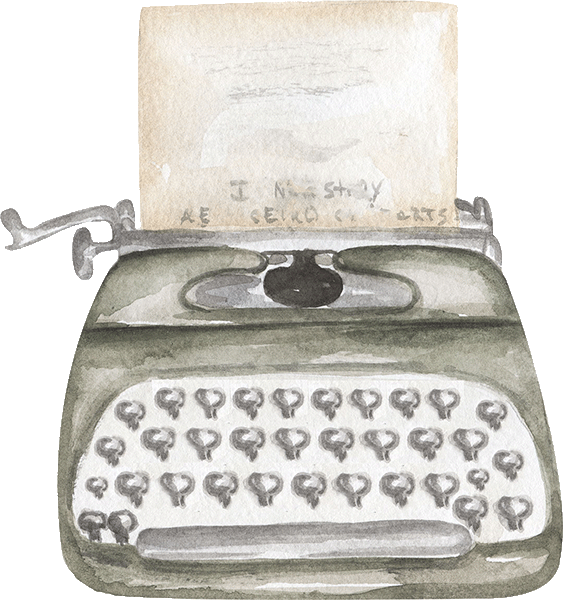
Now, I’ve never really had problems with starting novels. Finishing them, yes, definitely. Starting them … not so much. It’s actually one of my worst habits, novel-starting. But a friend of mine asked me to write a post on starting novels … so here I am.
I talked about this a little in my post Plot Construction 101: Exposition and Inciting Incident … you can also find my opinion about prologues here. However, here I hope to write something new and inspiring. Something no one has ever written about before. Something so stupendous it’ll knock your socks right off your feet and blow ’em to the moon!
Yeah, right.
I will, too! Come on, guys! Have a little faith in me! 😀 So, now, from the author of all the other posts on this blog …
A Few Tips for Beginning a Novel:
When you begin a novel, you want the first line to say something stupendous and original, something that sets your novel apart from the madding crowd (no, I don’t know what that means), something that asks a question that the reader can only answer by reading on!
How can you do this? There’s only one way … and that was summed up in the last two words of the former paragraph. 😛

*suddenly decides to name all my daughters “Keira” or “Elizabeth.”
On the first line …
- Don’t fuss about it in the first draft. You can come up with something eye-catching later; I’m 90% sure “it was the best of time, it was the worst of times” didn’t come from a first draft.
- When it comes time to fuss (anytime after the first draft is completed), don’t think too complicated. Big words in the first line are not a good idea in most cases.
- Start with a sentence that reflects the mood of the novel. Going for a dramatic mood? A dramatic first line is best. A comedic novel needs a comedic first line. A wistful novel needs a wistful first line. And so on.
- Ask a question. No, I’m not asking you to literally write a phrase with a ? at the end. But the first line should contain something that makes the reader ask a question. For instance …
- “It is a truth universally acknowledged that a single man in possession of a good fortune must be in want of a wife.” ~Pride and Prejudice, Jane Austen. Who, in this story, is the person who’s rich and needs a wife? Who’s going to pursue him? Is that going to go well? Is that man actually willing to be married?
- “Elnora Comstock, have you lost your senses?” ~A Girl of the Limberlost, Gene Stratton Porter. Who is Elnora? Who is speaking to her? Why has she lost her senses?
- “A little girl, perhaps five or six years old, perched on a low bench sporting rose-printed cushions.” ~The Lady of the Vineyard, Kellyn Roth. Yeah, you all knew that was gonna happen. Who is the girl? Why is she sitting on the cushions?
As you can see, they’re all great beginning lines. And they all ask questions in their own way.
Now hold it, you say. All sentences ask questions if you put it that way!
Yes, they do. But do they ask the right questions? Answer me that! Think: What questions do I want people to ask about my story?

On the first paragraph …
Also a big deal; this is the “drawing-in” section of the “hook,” after all. 😉
- If the first line is a big deal, start a new paragraph as with example 1 (up there ^). After telling us about how men wants to get married if they’re rich, she skips to a new paragraph and makes a more specific claim … that if a gentleman moves into a new neighborhood, he’s automatically the property of someone’s daughter. 🙂
- If the first line is simply an introduction to an explanation or part of description, keep writing the paragraph. It doesn’t hurt to start a novel off with a little bit of description, of the main character or of the place the novel will take place. Or perhaps to explain what you meant by that outrageous claim or combination of intriguing words.
- Make sure you don’t bore your reader with too much description before action or dialogue. Or perhaps start with action or dialogue, although make sure you explain where you are, who the characters are, etc. at some point. If you can do so between action and dialogue naturally and without seeming to suddenly change the subject, that’s a good idea. I always feel sneaky when I do this. 😉

On the first chapter …
- Let us know who the protagonist is, but don’t summarize their entire life. It is easy with a word here or there, a statement there and here to give the reader a vague idea at least of who the protagonist is and why we like him/her.
- Start in a place where something important is happening or about to happened or has happened, something that brings forth or has brought for the inciting incident.
- Make sure the reader knows what the main problem is and possibly how it needs to be resolved.
Ok, guys, that’s about all I have for now. I know it’s not much, but hopefully it’ll give you an idea on how to start a novel. If you have any questions (or anything to add), comment, please! 😀
~Kellyn Roth
p.s. I’ve been thinking about adding some Christian content into The Lady of the Vineyard recently. What do you think? Good idea, bad idea, doesn’t matter either way? If you’ve beta-read it, do you think it could be added in without awkwardness? I don’t want it to be a main theme like in TDS, but I want it to be there. 🙂



29 Responses
This is wonderful, Kellyn! It will help greatly with new story ideas. 🙂
Thanks! I was worried it was just repetitive … I can get like that sometimes. 😀
You did an awesome job. 🙂
I like the story how it is so far 🙂
I think it might be a little awkward because Christianity seems a little out of context with the family situation
But do what you feel is right 😉
did you notice that was the oreo method I think I;m getting betterYep, you’re definitely getting better! 😀
Yeah, I agree that it might be hard to add in. I don’t know how I could do it … but it just seems like I should. *shrugs* Hmm.
You could have someone in the story do Christian actions or say Scripture in their own words without being noisy and pointing it out? I haven’t read the whole thing, though (but I think I have the doc), so I don’t know what would be best.
The thing is, I want to, you know, have the books kind of be dedicated to God and all that … but I also want them to be good books! 😛
Do you have the docs? I was gonna ask for historical consultation. Because re-watching “I Love You Again” is just not gonna cut it … 😉
Oh, this will be helpful! 🙂 Thanks!
As for Christian content, I don’t really know, since I haven’t read the book and I don’t know what it’s about. But are the characters Christians? Because if they are, then it should be revealed. Are they atheists? Does the reader not know their religion? If a religion has absolutely nothing to do with the story, then maybe it’s not needed. I say that because, although I do like books with Bible verses or characters praying, if the characters know right from wrong and generally do the right thing, it does have an underlying Christian theme. Since you have a Christian worldview, you will show it through your writing, whether you say it or not. It’s quite interesting how a worldview affects one’s writing, even if one doesn’t mean to. For example, I’m currently reading a book where the dog must be fit and strong to survive. The author obviously has atheist worldviews. In fact, on the back of the book, there are the words ‘Survival of the Fittest’. Now that sounds evolutionary, doesn’t it? So, what I suppose I’m saying is, there doesn’t have to be ‘Christian content’, as in Christian characters and praying to have an underlying message of Christ. 😉
CutePolarBear
Well, I’d say that “survival of the fittest” is a fact, not an evolution thing. I mean, obviously (in nature, that is) the weaklings are gonna die. 😉
You’re probably right. 🙂
Well, to an extent, that’s true. But animals don’t always fight each other, and they don’t have to compete to survive. There are many examples of symbiosis. 😉
CutePolarBear
True. Although technically symbiosis would only be if it benefited both animals … and why am I talking abut this? I sound like the Magic School Bus. XD
Haha, do you sound like the Magic School Bus? 😀 Right, that’s what I mean. A wolf killing a rabbit for food is good for the wolf, (because he doesn’t starve) but it’s not so good for the rabbit. (that sounded a little gruesome :P) So obviously that’s not symbiosis. But evolutionists can’t explain symbiotic relationships, because you can’t evolve to live off of something when the other thing hasn’t evolved to live off of you. 😛
CutePolarBear
I never thought if it like that. I guess that’s true! 😀
THANK YOU FOR THIS POST! I have a question: is it okay to start off with one character (in the prologue) and then switch to other characters for the rest of the novel?
As for LOV having Christian content, I think maybe you could sneak it with Mrs. Collier. She could quote the Bible or Scriptures, for example!
I’d say that’s perfectly ok! Many people do it.
Yep, that, and I think Troy is a Christian. 🙂
Thank you, that helps a lot.
Me too! Although Adele doesn’t really seem like one . . .
I actually really like the name Elizabeth and I might name one of my children that…I don’t know, though, heh.
I think if you feel like you should add Christian stuff in, then I say go for it. If it really doesn’t work, you can take it back out later…but I think it’s a good thing to include.
I might make a second google doc and the see how it works on another or something. 😛
I think that’s a good idea, so then you’ll have both ways saved and can see which one is best and all that. Personally, I like the idea of adding Christianity. I like seeing religion in books, especially since it’s so often not there.
I’ve been working on adding it in some! It’s … well, it’s hard, and I need to think about it more and figure stuff out. 😀
That does sound a bit hard, but you can do it! *cheers you on*
*cheers self on* *sort of* 😉
Nice points and tips! 😀 It’s cool seeing an overview of how different authors start their books off…. I love that, lol, reading books from beloved authors or other authors… Everyone has a different story to tell, and each begins differently…
I have not read ‘The Lady Of The Vineyard’, but… It couldn’t hurt to make another document and do your idea! 🙂 I don’t know what the situation is all like… So I’m not sure how you could put Yeshua and Christianity into the book… But definitely, if you feel the book needs it, trust your gut! 🙂
Thank you! 😀 And I’m going to fiddle around with it for a while and see how everything work out! 🙂
I think adding Christian elements to your book is a great idea! And thank you for great advice. First lines and the opening paragraph matter so much!
Yep! I think I probably need to work on mine … they’re always pretty boring! 😀
Thanks for this post! Could you do one on character developement? Or if you have, send me the link? I need the help. R-E-A-L-L-Y BAD